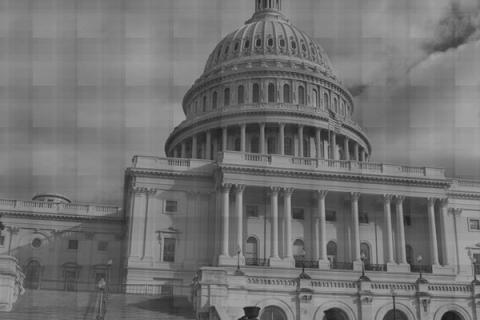It is no secret by thispoint that California faces a truly nightmarish situation fiscally, notto mention political roadblocks of gargantuan proportions. However,there is also a substantial problem circulating that nobody wants toaddress - namely, California's divisive concessions to environmentallobbying.
From the industry-shattering Proposition 2, which imposed 20 percent higher costs on the egg industry, to Governor Schwarzenegger's short-sighted push for AB-32,which tries to sneak the anti-growth, neo-Malthusian approach of theKyoto protocol into California's legal code. Thankfully, this latterpiece of legislation was blocked for a few years at the Federal levelsince its passage, but with President Obama's recent approval, the plancan go ahead. Those who supported the idea that human beings possessgreater intrinsic moral worth than polar bears and insects previouslylooked in vain for a champion to not only attack AB-32's absurdity, butto offer an alternative.
Check and check. In recent weeks, several different figures haveemerged to make it clear that not only is AB-32 unacceptable, it isalso unnecessary. Some of them are related to special interest groupswho are conventional allies of the Green agenda, whereas others arepolitical candidates looking to get an entrance into the realm ofpolicy entrepreneurship. All agree that AB 32 is the wrong way to cureenvironmental woes while simultaneously sustaining economic growth.
For a quick recap, AB-32 (or the "Global Warming Solutions Act")was introduced in 2006 and signed by Gov. Schwarzenegger on September 27th of the same year.This was a scant five months and three days after Al Gore's documentary"An Inconvenient Truth" had premiered in Los Angeles, and indeed, AB-32was probably helped quite dramatically by Gore's bit of brilliantlyalarmist crisis entrepreneurship, as the numerous falsehoodscontained in the film would not begin to be fully exposed for more thana year. And indeed, as apocalyptically inspired bills go, AB-32 did notdisappoint. According to a fact sheetput out by the Air Resources Board, AB-32 was designed to "establish astatewide GHG emissions cap for 2020, based on 1990 emissions byJanuary 1, 2008," to "adopt mandatory reporting rules for significantsources of greenhouse gases by January 1, 2008."
How these orgiasticventures into environmental statism were supposed to affectCalifornia's economy was not considered at the time, as the budgetcrisis had not yet hit.
So naturally, one would think that Schwarzenegger would postponethe act once it did. This would be to mistake Schwarzenegger'sgoverning philosophy, which is, rather like the current president,almost solely concerned with good intentions while doing everything atonce. But as already alluded, there is hope. So, naturally, the nextquestion is who can save California from another instance of manipulation by Hollywood and the Green agenda?
There are two such saviors, one of which is surprising. The first one is State Senator Tony Strickland, whose energy ideashave been profiled on this Web site at great length. Mr. Strickland hadalready gained a reputation for campaigning on energy in his run lastNovember, as the Santa Barbara Independent reported that "Stricklandlooks to private businesses for good ideas" and that Strickland "made astop at California Solar, a small company that works withbuilders to install thermal, photovoltaic, and radiant heat solarenergy systems." From this experience, Strickland has come up with aninventive plan to give individual citizens tax credits to switch toalternative energy sources, thus allowing the market to work throughstimulation rather than through mandates. If successful, this planwould nullify the need for AB-32, as Californians would begin consuminga much larger share of alternative energy through their credited taxdollars.
But, of course, positive reinforcement is not sufficient to informa pro-growth strategy. One also needs to have enemies for AB-32 whocould give Schwarzenegger and his green backers pause. Such figureshave also emerged from the woodwork and, to the surprise of nobody witheconomic knowledge, many of them come from a traditional Democraticvoting base - labor unions.
One blogger pointed outthat "The fact is private unions want jobs, so they want a healthyeconomy.Public sector unions want lots of revenue, which in taxphobicCalifornia means a healthy economy. Now that the economy is in a hugeslide, unions need to be more pragmatic than ever about the policiesbeen foisted on the state by their environmentalist allies." Theblogger also mentions that "The barely hidden truth about the largergreen movement, however, is that economic development just isn't apriority," which is a perception which is toxic for the environmentalmovement in times of economic crisis.
The move toward AB-32 is still going, naturally, but these otherfactors may contribute to the effort to stall it, which will make allthe difference. Otherwise, Californians may find themselves watchingthe amount of times they exhale just to make sure that they don'tover-emit.
